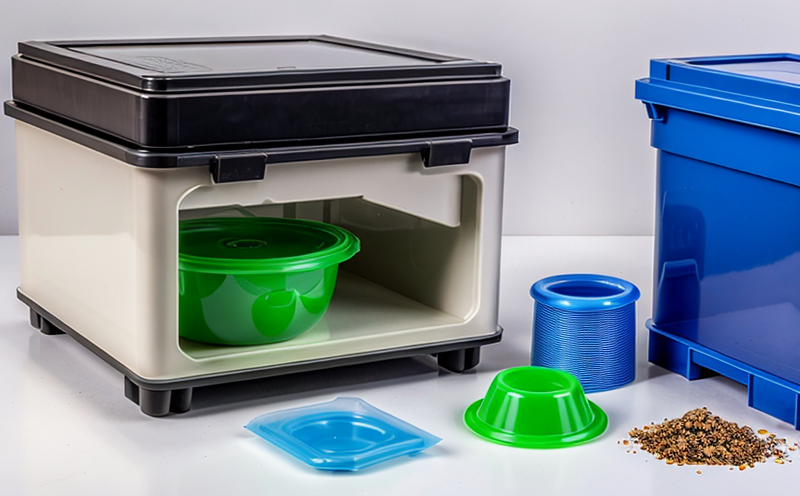ASTM D6400 Compostability Testing of Plastics Packaging
The ASTM D6400 standard is a globally recognized method used to assess the compostability of plastics, particularly those intended for use in packaging. This service evaluates biodegradable plastic materials under controlled conditions to determine their ability to break down into natural elements within a composting environment.
The ASTM D6400 test involves placing the sample material in a specific type of composting environment that mimics industrial composting conditions, such as those found at commercial compost facilities. The key parameters include temperature, moisture content, and oxygen availability, which are crucial for the degradation process to occur effectively.
Sample preparation is critical; it involves ensuring that the sample represents the material intended for use in packaging. This might mean cutting samples into small pieces or sheets of consistent dimensions. The test requires precise control over variables such as the initial mass, surface area, and moisture content of the samples to ensure accurate results.
The process typically lasts between 90 and 180 days, depending on the specific requirements set by ASTM D6400. During this period, the sample is regularly monitored for weight loss, which indicates biodegradation. The test also evaluates the evolution of carbon dioxide (CO2) as a product of microbial metabolism.
The acceptance criteria for compostability under ASTM D6400 are stringent and designed to ensure that the material breaks down into natural elements without leaving harmful residues. A minimum degradation rate is required, typically between 90-98% weight loss over the test duration. Additionally, the evolution of CO2 should be at least 50% of the initial carbon content.
For quality managers and compliance officers, this service offers assurance that their packaging materials meet international standards for compostability. R&D engineers can use it to optimize formulations and improve material performance. Procurement teams benefit from knowing they are sourcing sustainable materials that comply with global regulations.
The ASTM D6400 test is part of a broader suite of tests aimed at ensuring the environmental friendliness of packaging materials. By using this method, companies can contribute to reducing landfill waste and promoting circular economy principles in their supply chains.
International Acceptance and Recognition
- ASTM D6400 has been widely adopted by countries with stringent environmental regulations, including the EU, Japan, and many states within the U.S. This acceptance ensures that materials meeting these standards are not only environmentally beneficial but also compliant with international trade agreements.
- The standard is recognized for its ability to provide a consistent method of evaluating compostability across different regions. This consistency helps in streamlining supply chains and ensuring uniform quality control measures.
By adhering to ASTM D6400, companies can ensure that their packaging materials are accepted by compost facilities worldwide, thereby facilitating the transition towards more sustainable waste management practices.
Competitive Advantage and Market Impact
- A company demonstrating compliance with ASTM D6400 can differentiate itself in a crowded market. Consumers increasingly favor products that align with environmental sustainability goals, making compostable packaging an attractive feature for branding.
- The service helps businesses comply with regulations imposed by various regions, reducing the risk of legal penalties and enhancing corporate social responsibility (CSR) profiles.
Adopting ASTM D6400 testing can provide a strategic advantage in terms of market positioning. It allows companies to anticipate future trends in packaging materials and stay ahead of regulatory changes.
Use Cases and Application Examples
- Biodegradable Bags: Testing ASTM D6400 ensures that biodegradable bags break down effectively without leaving harmful residues, making them suitable for use in retail environments where they are often discarded.
- Plastic Film Packaging: This service is crucial for assessing the compostability of plastic films used in food packaging, ensuring they can be recycled or composted at end-of-life.
- Bottle Caps and Lids: ASTM D6400 helps verify that caps and lids made from biodegradable plastics can decompose along with their containers, promoting recycling efficiency.
In each of these use cases, the service plays a vital role in ensuring that packaging materials meet stringent environmental standards. This not only enhances brand reputation but also supports broader sustainability initiatives within the supply chain.





